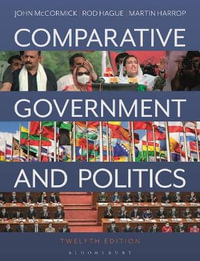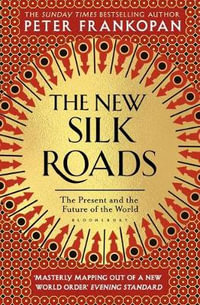This unique survey analyzes the interconnections between water and human security in India and its region. In India, population growth, development, and modernization have brought water policy to the top of the agenda of national and local governments. Transboundary water sharing, dams, and projects to provide water have become strategic geopolitical tools. Water is a key issue in the India-Pakistan-Kashmir dispute, and has strained the relations between India and Bangladesh. If the availability of water may cause conflict, it is also essential for human development and environmental sustainability. Cooperation between states is needed to increase economic development, and the book argues that the importance of water for human security calls for the creation of a security community, that is: a stable political alliance, which will contribute to peace and development in the region, with India playing a key role in water leadership.
This comprehensive survey of a vital geopolitical issue of the 21st century in an emerging country will be invaluable to anyone studying Indian politics, Asian politics, environmental policy, and international law.
Industry Reviews
An impressive addition to the growing body of literature reexamining the definition of "security" in the 21st century. Further distinguishing this work is the authors' thoughtful examination of water security as it applies to India-making this one of the first studies to do so. -- Dorothy Zeisler-Vralsted, Eastern Washington University, USA
This book affords an important, well-researched case study on the problem of freshwater sustainability. The authors tackle the complex issue of how human security is actually a tightly-interconnected array of factors including governance; particularly state capacity for regulating water supply and quality, as well as private water rights, water markets, and trans-boundary institutions which cooperate over water allocation. By rejecting that narrow definition of human security as the avoidance, say, of basin-wide conflicts that threaten peacekeeping, Asthana and Shukla are able to show how this important concept actually require institutions charged with managing vital resources such as water to: provide for basic human needs; ensure the renewability of a resource; and, reduce vulnerability to climate and other environmental hazards which threaten its vigor. They further argue that human security for water is achieved by enabling the political and economic institutions which manage these resources to become more resilient through reforms that make them more representative as well as responsive to popular demands and socially-just outcomes. Students of water policy everywhere will immensely benefit from this work - not just scholars focused on South Asia." * David Lewis Feldman, Professor, Departments of Planning, Policy and Design and Political Science, University of California, Irvine, US *
[Water Security in India] makes a compelling and data-driven case for waking up to the alarming realities of water challenges faced by the Indian subcontinent . . . For anybody interested in water security, its intricate links with other forms of security and the threats water stress poses to the South Asian region in general . . . this book is a must read! -- Sudhanshu Sharma, London School of Economics, UK * LSE Review of Books *
Water more then anything else will play a major role in either preserving or destroying life in the 21st century. With climate change and global warming threatening the planet, a focused study like this is an eye-opener, which we cannot choose to ignore * Laxman D. Satya, Professor, Department of History, Lock Haven University of Pennsylvania, US *

























